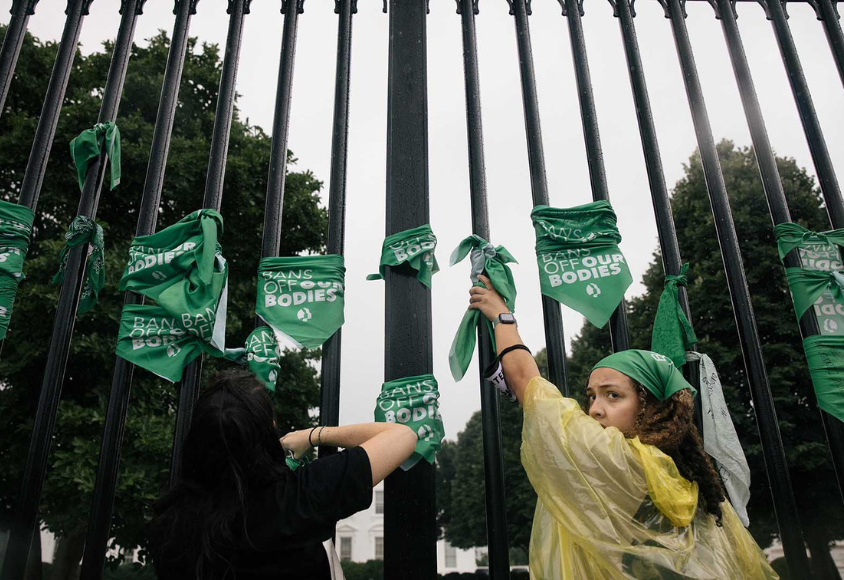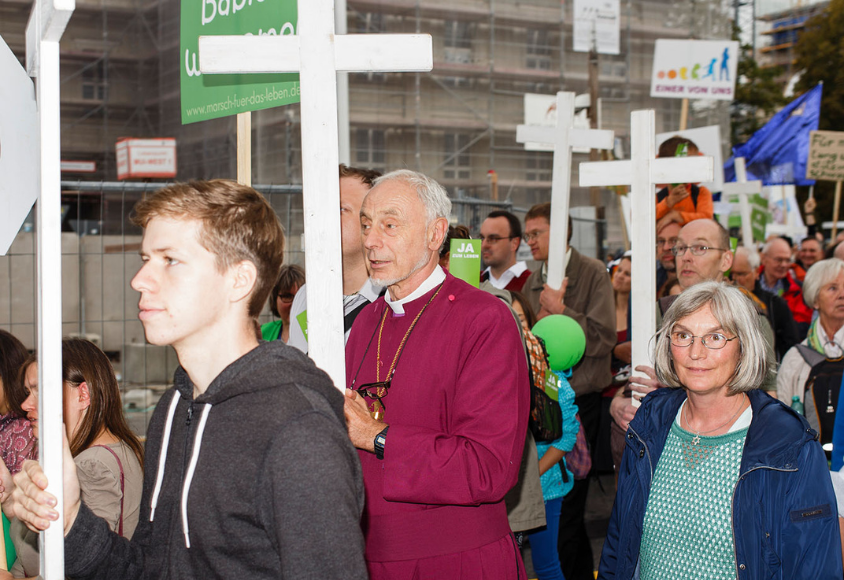Listen to the essay here:
Author: Annabelle Chapman
Access to reproductive healthcare – including safe and legal abortion – cannot be taken for granted. Recent events in the United States and Poland, where there has been a rightward shift under the Law and Justice government since 2015, are instructive. As the world grapples with war and inflation, we must speak up because even in countries where access to abortion is not currently threatened, there is a lot of work to be done.
Whenever the debate on abortion is rekindled, I think of Anna. Back in 2016, I boarded an early morning train from Berlin Hauptbahnhof to Prenzlau, a town about an hour north of the capital, to visit a local clinic for an article. At the time, the clinic was known as a destination for women from Poland who were seeking an abortion; a Polish gynaecologist worked there and many contacted him directly. After I interviewed him, one of the Polish women who had just received an abortion agreed to speak to me. Anna – the name she gave me to protect her identity; not her real name – had travelled to Germany alone by train from her home in Poland’s rural, socially-conservative south. Although she identified as a Roman Catholic, Anna said that she already had three young children and that she and her partner could simply not afford to add a new member to their family.
Listening to Anna’s story, I was struck by her strength. Despite having travelled hundreds of kilometres on her own to Germany – an unfamiliar country where she did not speak the language – and now facing the long journey home, she was speaking up to raise awareness of Poland’s restrictions on abortion, which, even at the time, were among the toughest in Europe. This was in 2016, before a ruling by the Constitutional Tribunal that was loyal to the government restricted access to abortion even further. In 2021, the year the new rules entered into force, just 107 legal abortions were performed in Poland (Ferfecki 2022) – ten times lower than the number carried out in previous years.
Linking the issue of abortion to war, weapons and inflation
The year 2022 has been dominated by ominous words. War. Weapons. Inflation. Recession. The headlines are loaded with urgent questions, from how Europe can be weaned off Russian gas to whether the West should engage with Russian leader Vladimir Putin at all. These questions are obviously important: they concern the security of millions of people. However, this focus on hard security and the economy can provide an easy distraction from the state of women’s rights – especially in countries where the political leadership does not value these rights.
Yet all of these issues are connected. Access to abortion – or, rather, the lack of it – does not exist in a vacuum, separate from the war in Ukraine or the global economic situation.
First, let us consider the war. Earlier this year, the world was shocked by images from Maternity Hospital No. 3 in Mariupol, which the Russian Air Force bombed on 9 March 2022. These included a photograph of a heavily-pregnant woman called Mariana Vishegirskaya descending the stairs, her face bloodied. People were outraged: no pregnant woman should be exposed to this kind of physical and mental stress. After Russia invaded the country on 24 February 2022, millions of Ukrainian women fled the horrors of the war with their children. Many of them found refuge in neighbouring countries in the EU, where they were safe – that is, safe from the Russian bombs. Yet once they had crossed the border, they faced new types of dangers as women: they were at risk of human trafficking and, in Poland, they were unable to access a legal abortion if they needed one. The only exception to the ban on abortion in Poland since the regulations became even tougher last year is when the woman’s life or health is endangered by the continuation of the pregnancy.
Second, there is the economic situation. I recently saw an article with the headline “Inflation, not abortion, is the likely key issue in the US midterms”, referring to the elections in November 2022 (Al Jazeera 2022). Fair enough – except that the two issues are not separate. Here is another recent headline, also from mid-2022 (The Guardian 2022): “Record number of abortions in England and Wales amid financial insecurity”. The figures referred to 2021, a period of financial uncertainty caused by COVID-19, but before the latest increases in the cost of living in Britain and many other countries. Most of the women obtaining abortions were already mothers, the article noted, with the largest increase in terminations in the 30-34 age group. Because they were in Britain, these women were able to receive a legal abortion. Women in Poland do not have that option. This brings me back to Anna, whose decision to get an abortion was linked to her economic situation. She was prioritising taking care of her existing family: the three children she already had.
Women’s rights are by no means a “closed” issue
All this means that women’s rights – including access to a safe and legal abortion – are by no means a “closed” issue. To quote French writer Simone de Beauvoir: “Never forget that a political, economic or religious crisis will be enough to cast doubt on women’s rights. These rights will never be vested. You will have to stay vigilant your whole life.” As long as these rights remain at risk or are actively being curtailed, as they are across the Atlantic right now, people who can speak up should do so – including women not directly affected by abortion bans in “faraway” countries such as Poland (which, of course, is right next to Germany) and men. Speaking up should go beyond posting on social media and extend to positive engagement: sharing contacts and resources, not just within a single country, but across borders.
This is not only about abortion: it is about women’s rights to make decisions about their bodies, regardless of whether they are in their hometown or fleeing a war. Even in countries where access to abortion is not currently threatened, there is work to be done: ensuring that reproductive healthcare – including, but not limited to, abortion – is easily available to vulnerable groups of women such as refugees, who might not speak the language or know how to navigate the country’s bureaucracy. As the world grapples with uncertainty – war in Europe and the looming winter – we must speak up to ensure that these rights are not forgotten.
Annabelle Chapman (@AB_Chapman) is an independent journalist.
Bibliography
Al Jazeera (2022): Inflation, not abortion, is the likely key issue in US midterms, https://www.aljazeera.com/news/2022/5/9/inflation-not-abortion-is-the-likely-key-issue-in-us-midterms.
Ferfecki, W. (2022): Ogromny spadek liczby aborcji w Polsce, Wydarzenia, https://www.rp.pl/spoleczenstwo/art36787631-ogromny-spadek-liczby-aborcji-w-polsce.
The Guardian (2022): Record number of abortions in England and Wales amid financial insecurity, https://www.theguardian.com/world/2022/jun/21/record-number-of-abortions-in-england-and-wales-amid-financial-insecurity.



